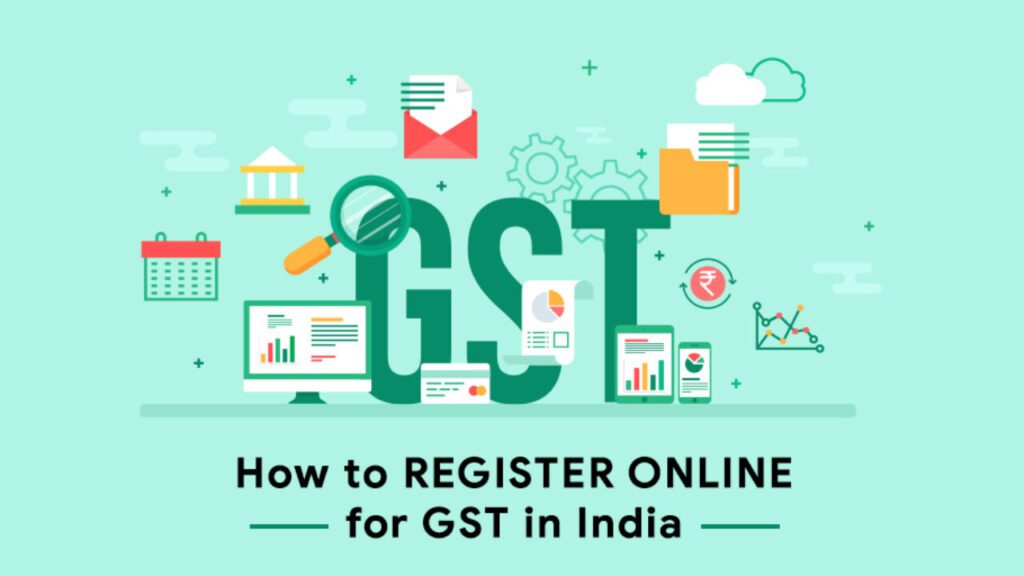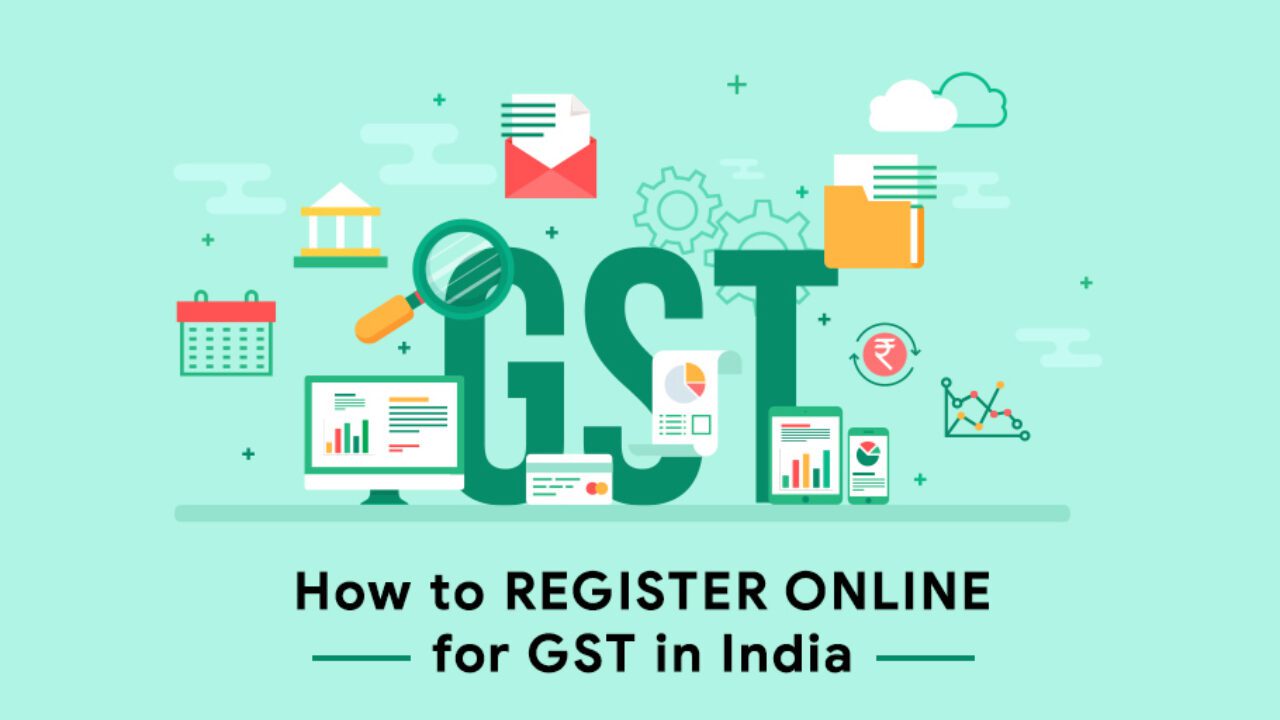GST Registration in India
GST Registration in India (Goods and Services Tax) is one of the most significant tax reforms in India, aimed at creating a unified and streamlined taxation system. If you’re starting a business or already running one, understanding GST registration is crucial to stay compliant and avoid penalties.

In this blog, we will cover everything you need to know about GST registration — its benefits, who needs it, documents required, the online process, and more.
Table of Contents
What is GST Registration?
GST registration is the process by which a taxpayer gets registered under the Goods and Services Tax Act. Once registered, a unique GSTIN (Goods and Services Tax Identification Number) is assigned, which is essential for collecting GST, availing input tax credit, and filing returns.
Who Should Register for GST?
GST registration is mandatory for:
- Businesses with aggregate turnover exceeding ₹40 lakhs (₹20 lakhs for special category states).
- Service providers with turnover above ₹20 lakhs (₹10 lakhs in special category states).
- Interstate suppliers of goods and services.
- E-commerce sellers and platforms.
- Agents of a supplier.
- Input service distributors.
- Those liable to pay tax under the reverse charge mechanism.
Note: Voluntary registration is also allowed for businesses below the threshold, enabling them to claim ITC and improve credibility.
Benefits of GST Registration
- Legal recognition of your business.
- Input Tax Credit (ITC) – Claim tax on purchases.
- Wider market reach – Essential for e-commerce and interstate sales.
- Avoid penalties – Non-registration can lead to heavy fines.
- Simplified tax structure – Unified filing and compliance.
Documents Required for GST Registration
Here is a checklist of common documents:
For Proprietorship:
- PAN card of owner
- Aadhaar card
- Photograph
- Address proof of business (electricity bill, rent agreement, etc.)
- Bank account details (cancelled cheque/passbook)
For Partnership or LLP:
- PAN card of the firm
- Partnership deed
- Aadhaar, PAN, and photos of partners
- Business address proof
- Bank details
For Private Limited Company:
- PAN of company
- Certificate of incorporation
- MOA & AOA
- PAN, Aadhaar, photos of directors
- Address proof
- Bank account proof
How to Register for GST Online in 2025
Here is a step-by-step guide:
- Visit the GST Portal: https://www.gst.gov.in/
- Click on ‘Register Now’ under the Services > Registration tab.
- Select ‘New Registration’.
- Enter basic details like:
- Legal name of business (as per PAN)
- PAN
- Mobile number and email (for OTP verification)
- After validation, you’ll receive a Temporary Reference Number (TRN).
- Login using TRN and complete Part B of the registration form.
- Upload the required documents.
- Submit the application using DSC or Aadhaar-based OTP.
- An Application Reference Number (ARN) will be sent for status tracking.
Timeline:
- GSTIN is usually issued within 7 working days if the application and documents are in order.
GST Registration Fees
- No government fee is charged for GST registration.
- However, professional service providers (like CA firms or GST consultants) may charge between ₹500 – ₹2,000 depending on complexity.
Penalty for Not Registering
If a business that is required to register under GST fails to do so:
- Penalty: ₹10,000 or 100% of the tax due, whichever is higher.
- Avoid this by registering on time and keeping your filings up to date.
Voluntary GST Registration
Even if your turnover is below the mandatory limit, you can opt for voluntary registration. This is especially useful for:
- Freelancers
- Small service providers
- Traders dealing with registered businesses
It enhances your credibility and allows you to claim input tax credit on purchases.
Common Mistakes to Avoid
- Registering under the wrong category (composition vs regular).
- Providing incorrect business address.
- Uploading unclear documents.
- Not checking the correct PAN details.
Make sure to verify each detail carefully before submission.
Getting your GST registration is the first step towards becoming a compliant and trusted business entity in India. Whether you’re a small trader, a service provider, or an online seller, being GST-registered opens doors to smoother business operations and long-term growth.
If you’re unsure about the process or need help with documentation, consider consulting a GST expert or using online portals offering assisted registration services.
Q1: How long is the GST registration valid?
For normal taxpayers, it is valid until cancelled. For casual taxpayers, it is valid for 90 days.
Q2: Can I make corrections after registration?
Yes, certain fields can be amended online under “Amendment of Registration.”
Q3: What if I operate in multiple states?
You need to register separately for each state where you are operating.

